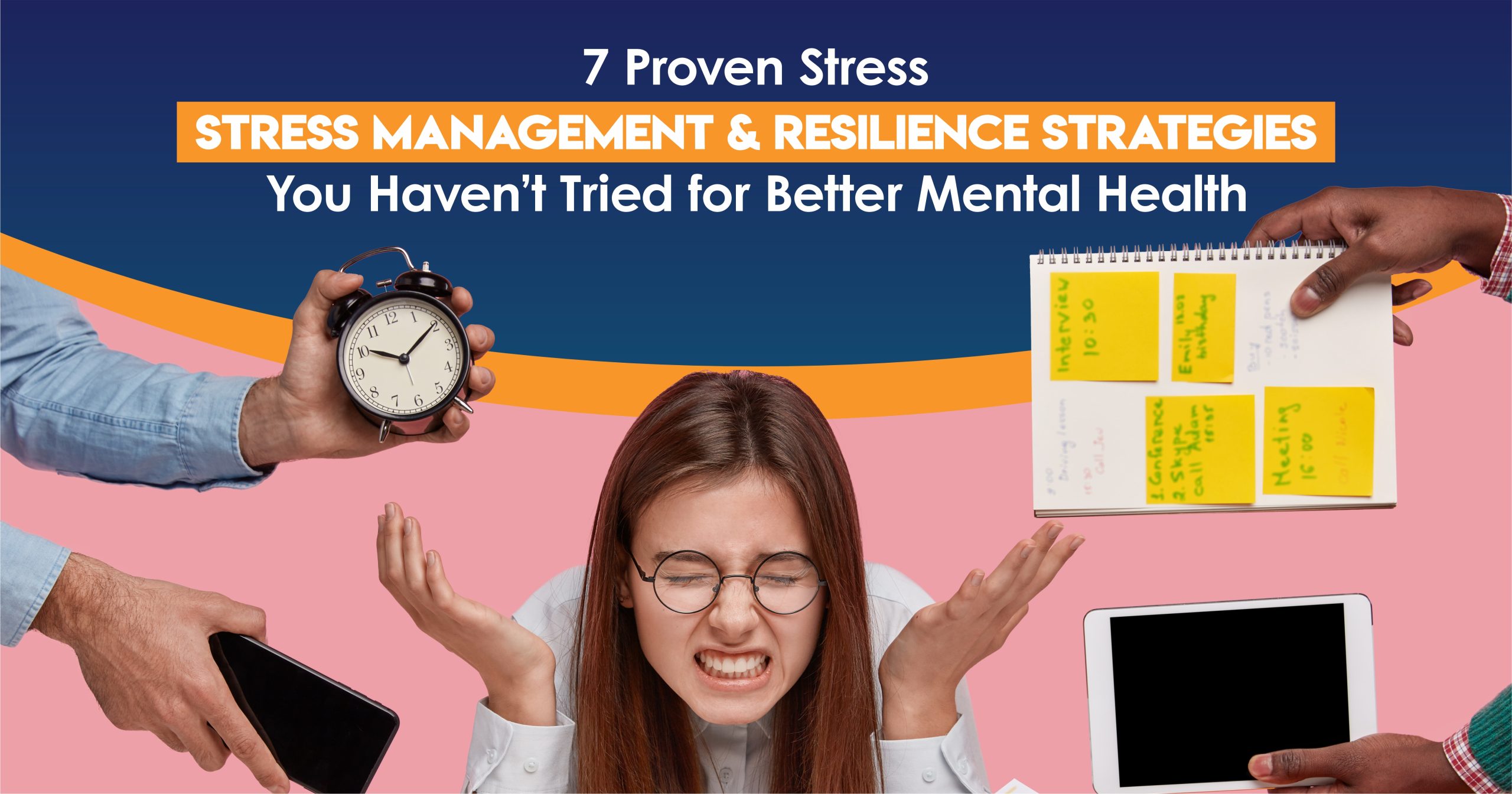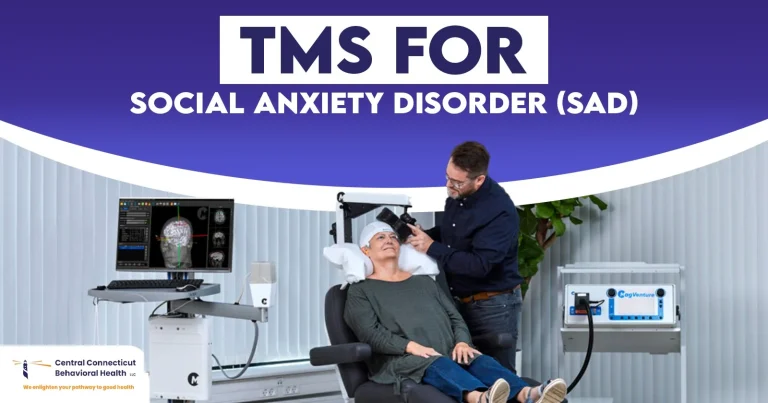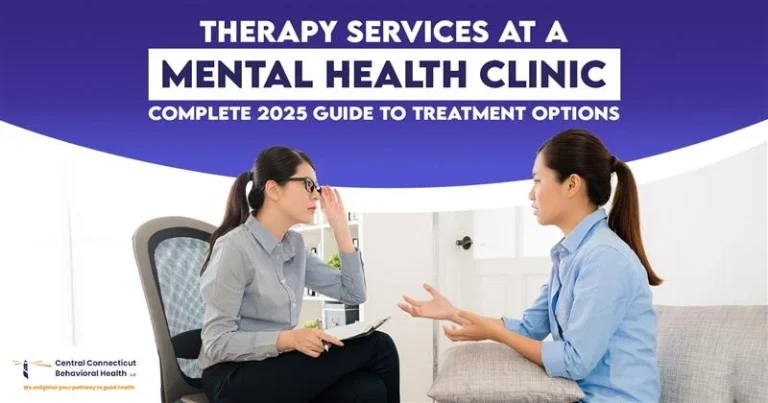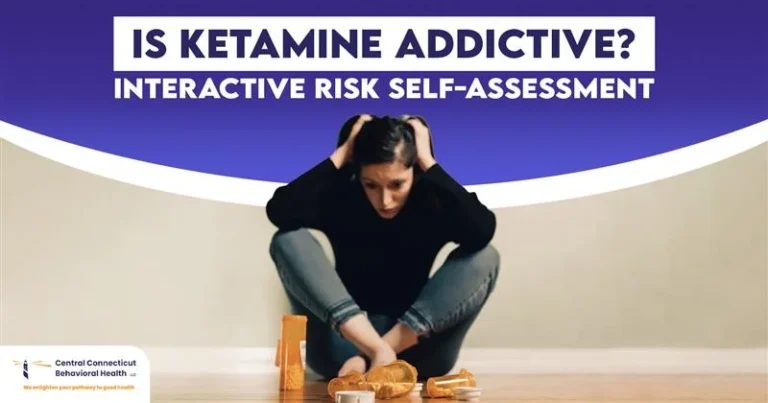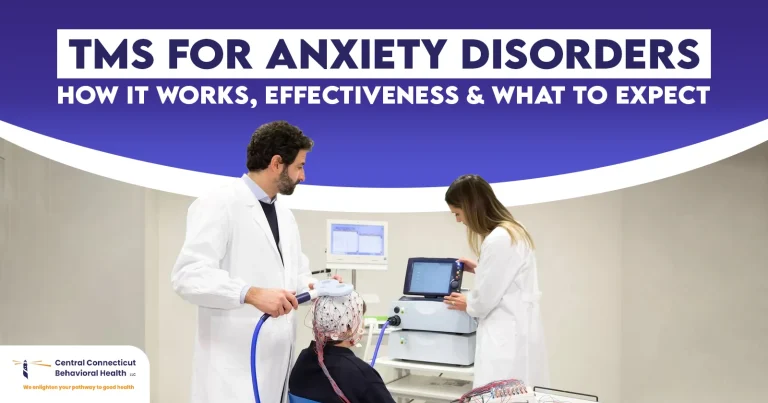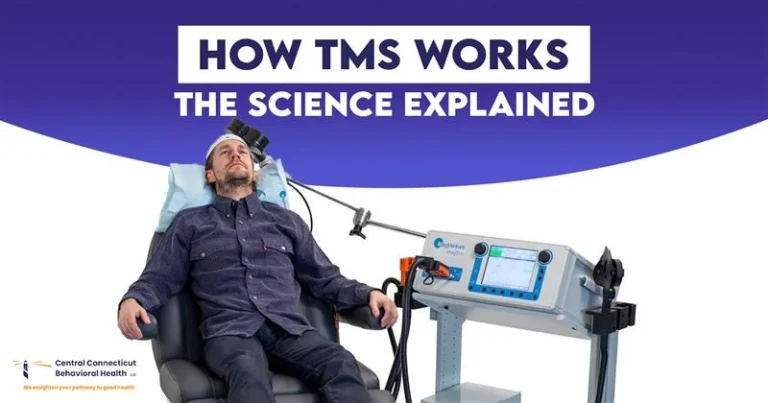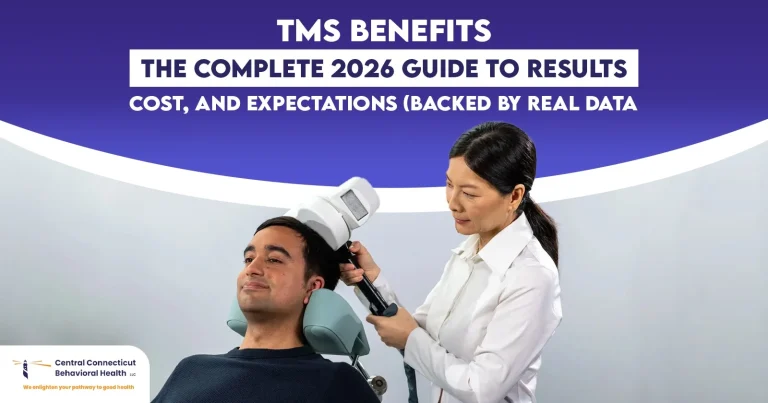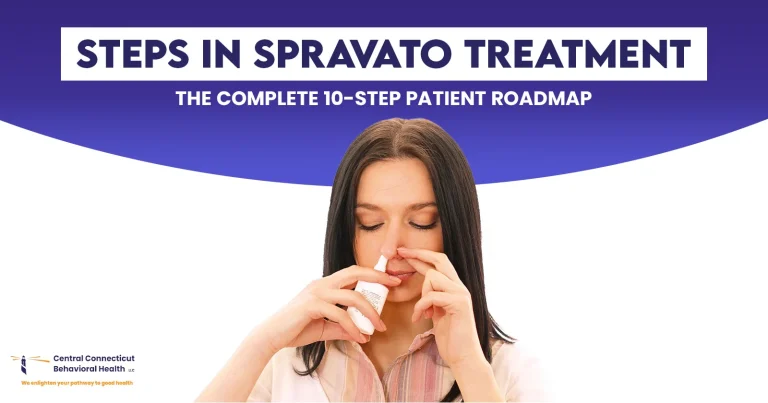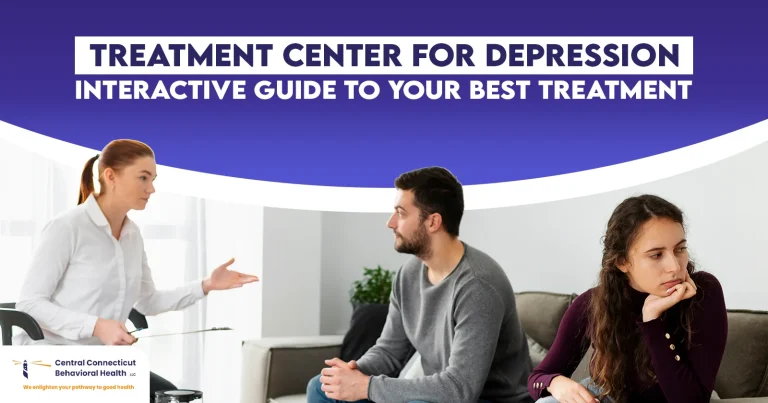Stress is part of life, but when it tips over the edge or continues, it can interfere with your physical and mental health. The positive side is that stress management and resilience are possible and can be performed with proven strategies. Effective stress management and resilience may be built to recover your condition more quickly and make it possible to overcome hardships and take the steps toward achieving a better mental condition. You may have heard of the adage, the general feedback already, which is to breathe, exercise, or have a good night’s sleep.
You have probably heard the general advice before: breathe deeply, exercise, or get a good night’s sleep. What are the strategies that are a tad more profound? This article will provide 7 effective and lesser-known stress relief techniques, scientifically and psychologically based ways of relieving stress.
What Is Stress Management and Resilience?
Stress management means making use of tools or strategies for lowering bodily and mental anxiety. It allows you to feel calmer, concentrated, and on command in the military- life was stressful during the run-in, during the hard severance. You see how to be calm with your body, clean with your thoughts, and escape stress, controlling your day.
Stress management and resilience refer to the ability to recover from something undesirable. It is to be strong in mind, although things are good or they are bad as they can be. Strong individuals will not quit so easily; they will keep going and, through their hardships, they will acquire. When you combine stress management and resilience, you will have a powerful skillset.
Why Stress Management and Resilience Matter for Better Mental Health
Without treatment, stress can lead to the development of whispers, depression, heart problems, insomnia, and even affect the immune system.
And these are but a few benefits of stress management and resilience:
- Improved attention and concentration
- Better ability to control emotions
- Fewer medical problems
- Better interrelationships
- Increased self-confidence
-
Progressive Muscle Relaxation (PMR)
This is a method in which certain muscle groups in your body get tensed, followed by relaxing in sequence. It boosts you from nervous to targeted to downright uncovered– a one-size-fits-all means to manage anxiousness and also come to be more mindful of the body physical body.
- Sit or be in a calm place.
- Tighten the muscles for 5 seconds.
- Up and go, working upper body to legs.
Doing PMR daily, even for 10 minutes, is one of the most underrated stress relief techniques.
-
Nature Walks with Purpose
You’ve heard before that exercise is good for stress relief. But taking a mindful nature walk can almost double the effect. Moving through green spaces not only promotes physical activity but also soothes the nervous system. Pay attention to unearthly surroundings, not earthly phone. This movement for the mind also helps to promote good mental health by combining physical action with stillness of mind.
-
Social Connection Breaks
Human beings are biologically programmed to be interconnected. A factor may increase stress, i.e., loneliness, but even simple interactions in a day make a difference in mood and resiliency.
Thunder Fast Ways to Connect:
- Sign in with one of your friends.
- Eat family dinner (no screens).
- Belong to a local youth group or club.
- Attend support groups or circles of therapy.
Among the most certain defense strategies against stress and burnout, good social networking is also included.
-
Breathing Techniques for Busy Moments
What are the best breathing exercises for anxiety during work breaks? Here’s one to try! How to Do It:
- Breathe in over 4 seconds.
- Wait 4 secs.
- Breathe out 4 seconds.
- Wait 4 secs.
- Do these 2-4 minutes.
Apply when in the moment of a meeting, break, or before a task becomes stressful. It is one of the stress relief techniques; breathing deeply can lower your heartbeat and relax your mind in a matter of seconds.
-
Create a Personal Stress Management Plan
In case you would like to learn how to manage stress more regularly, see what stress management plan you can create on either a daily or weekly basis. This will keep you proactive as opposed to reactive.
In your plan, you can have:
- Morning stretching and gratitude journaling
- Breathing in the afternoon or walking
- Evening page (music, bath, light reading)
- Wellness or therapy check-ins every month
-
Digital Detox Periods
Without knowing it, social media, emails, and news updates can create mental noise. See if you can have a day of short breaks when you are using screens.
- Half an hour in the morning, without your phone
- No-screen lunch break
- An hour pre-bed is free
-
Strengthen Your Resilience Through Self-Compassion
Write yourself a kind of supportive letter as you might to a friend. Or talk about the affirmations:
- I do my best to an extent.
- “There is nothing wrong with resting.”
- “One step at a time, I can cope with this.”
- Compassion to oneself develops inner strength, and this is the core of resilience.
Healthy Lifestyle and Stronger Mental Health
Healthy living is not only based on food and exercise. It implies that you get into practice and take up things that improve your mental and physical health. Basic self-management practices to support & help build resilience:
- Sleep sufficiently (7 to 9 hours)
- Consume balanced and wholesome meals
- Be active, even moving causes benefits
- Hydrate and particularly when you feel overwhelmed
- Restrict such anxiety-stimulators as caffeine and alcohol
Final Thoughts: You Have More Control Than You Think
Stress is one thing that accompanies life, but this does not mean you should suffer due to it. Every human being experiences stress at one time or another; the management of stress is what counts. Donating to your mental health. You can take care of your mental health and feel stronger progressively when you create healthy habits, attempt simple ways to release stress, and stay in touch with other people.
You are not always supposed to make things great in one go. Test out one or two of the stress management concepts that we discussed. Perhaps it is a breathing technique, a 5-minute walk, or a call with a friend. And continue to do it daily, and it will start becoming a part of your life.
As time goes you are going to feel calmer, more balanced, and with greater ability to cope with difficult situations. That is a way to build resilience, learn, grow, and never quit.
So, if you observe in yourself or someone around you who is facing the issue of stress, you may reach out to Central Connecticut Behavioral Health(CCBH). Our mental health professional is here to assist you and recommend the best solution for you!
FAQs: Stress Management and Resilience
What is resiliency and stress management?
Stress management is defined as the methods applied in easing physical and emotional pressure. Resilience refers to your fast recovery after being stressed or after having adversity. They are all there to make you strong and calm, even in the most difficult situations.
What are the Stress management and resiliency advantages?
They assist you to:
- Minimize anxiety and burnout
- Better mood and energy
- Get a better sleep
- Reason in a better way
- Deal with problems in life more easily
Which are the stress management techniques that work?
Some of the confirmed practices are deep breathing, mindfulness, progressive muscle relaxation, journaling, exercise, and nature exploration. The major one is consistency.
How do you cope with work or school stress pressure?
Take occasional breaks to stretch or catch a breath, make lists, have good, solid priorities, and discuss them with someone you are close to. A plan makes dealing with pressure easier.
Does physical activity have any benefit on mental stress?
Yes. Exercise, which involves regular physical activity, lowers the level of cortisol and releases endorphins, which elevate mood. Walking even 20 minutes could be very significant.


